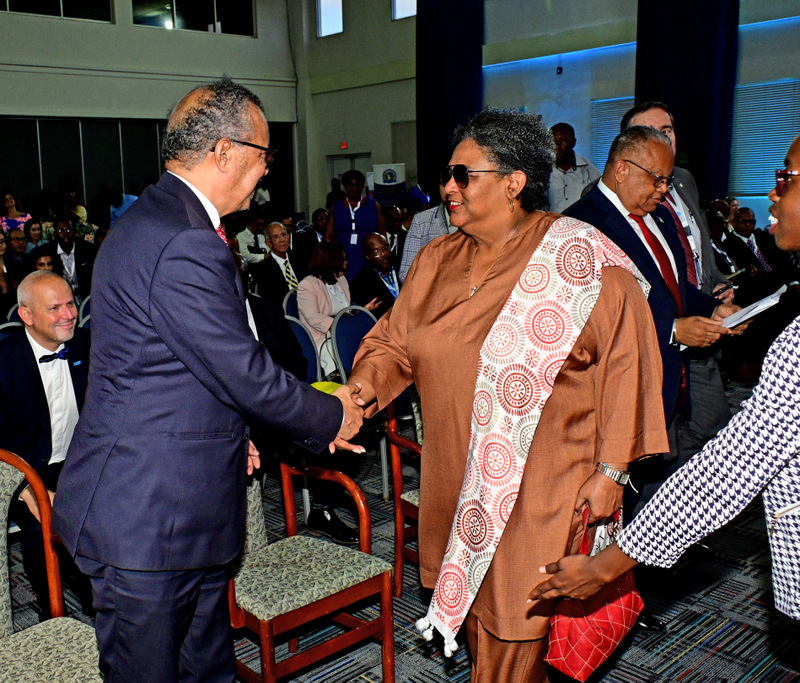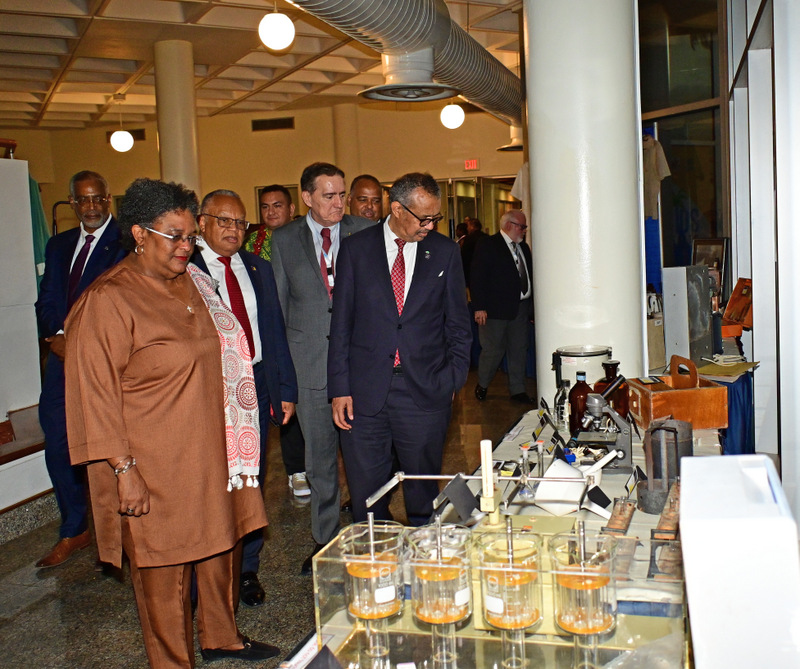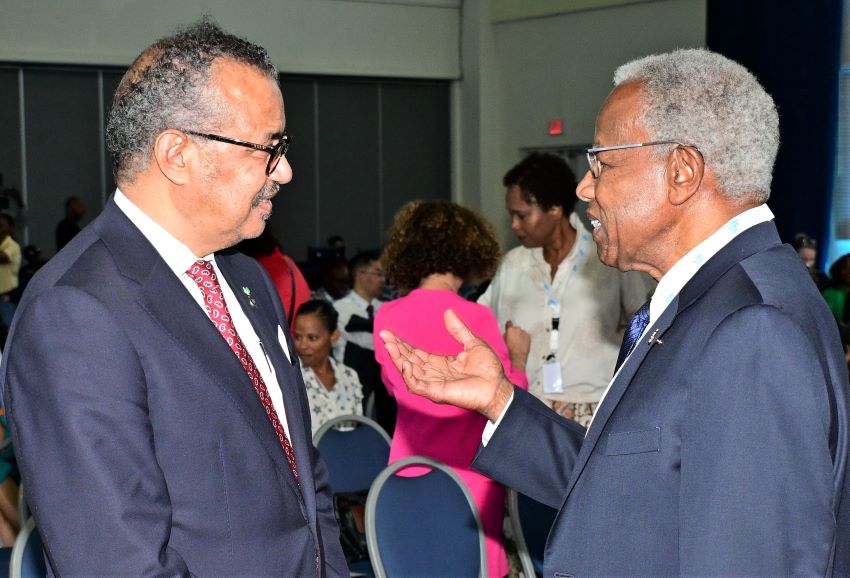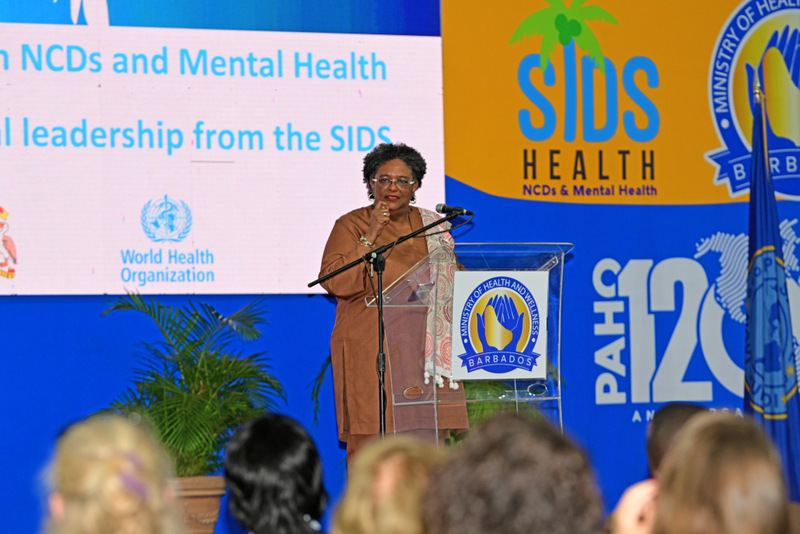PM Mia Amor Mottley addresses the SIDS Ministerial Conference opening ceremony. (PICTURED ABOVE) PHOTO CREDIT Barbados Government Information Service
Director-General of the World Health Organization (WHO), Dr. Tedros Ghebreyesus, has called the burden of non-communicable diseases (NCDs) and mental health conditions in small island developing states (SIDS) a “crisis” that requires immediate attention.
Dr. Ghebreyesus was speaking at the opening ceremony of the Ministerial Conference on NCDs and Mental Health, on Tuesday evening, at the Lloyd Erskine Sandiford Centre. The meeting is being hosted by the WHO, Pan American Health Organization and the Government of Barbados, from June 13 to 14.
“NCDs, such as cardiovascular diseases, diabetes, cancers, and chronic respiratory conditions, are responsible for the majority of premature deaths worldwide. In small island developing states, these diseases exert an even heavier toll due to various socio-economic factors, fragile health systems, and environmental vulnerabilities.
“Moreover, mental health conditions are on the rise, affecting the well-being and prosperity of individuals, families, and communities across these nations. We cannot afford to ignore this crisis. It is our moral imperative to act swiftly and decisively, and to leave no one behind,” he told Ministers of Health and delegates from the Caribbean and Pacific nations participating in the consultation.
The Director-General further challenged participants to use the SIDS conference as a platform for commitment and accountability, noting that their commitment was vital to “shaping effective policies and strategies that will empower small island developing states to overcome these challenges”.
Dr. Ghebreyesus said the path to successfully addressing the problems facing SIDS countries must be one based on equity, resilience, and sustainability, emphasising that these states must strengthen health systems, enhance prevention and early detection measures, and prioritise the integration of NCD and mental health services into primary health care.
He pointed out that the challenges faced by small island developing states were interconnected and multifaceted.
“Climate change, environmental degradation, social and economic inequalities, and the commercial determinants of health exacerbate the burden of NCDs and mental health conditions,” he underscored.
The WHO Director-General said that despite these countries’ limited resources and geographical constraints, they showed “remarkable” resilience when faced with adversity.
He shared that the SIDS Ministerial Conference builds on years of advocacy and urged those attending to take “SIDS-specific actions and apply evidence-based solutions to overcome the multifaceted challenges that stand in our way”.
“Together, we can build a healthier, more resilient future for small island developing states.May this conference be the catalyst for transformative action, fostering hope and prosperity for all,” Dr. Ghebreyesus stated.
The conference will set out an ambitious agenda to transform the capability of SIDS countries to proactively respond and effectively deliver health outcomes in relation to NCDs and mental health. The outcome document from the conference will serve as an input into the preparatory process leading to the 4th High-level meeting of the United Nations General Assembly on NCDs, to be held in 2025, as well as future global summits on mental health. (MR/BGIS)







